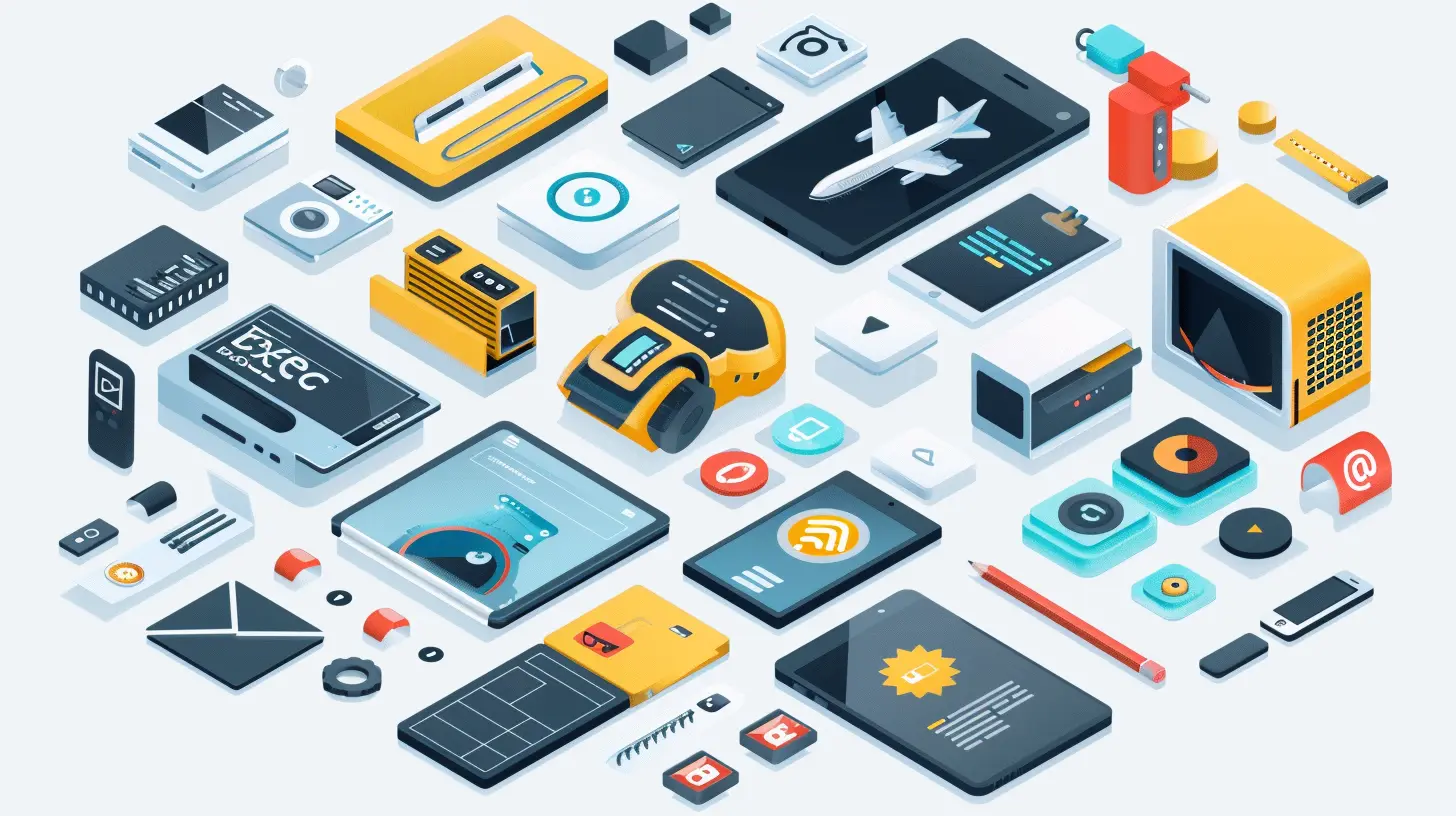Essential Tools for Mobile App Developers
2 September 2025
So, you're diving into the exciting world of mobile app development, huh? Whether you're a seasoned coder or just starting your journey with a brain full of app ideas, one thing’s for sure—having the right set of tools makes all the difference. Think of it like preparing for a road trip. Without a map, snacks, and your favorite playlist, you’re probably not getting far. The same goes for app development. The right tools make your workflow smoother, your output richer, and your stress levels way more manageable.
In this article, I’m breaking down the essential tools for mobile app developers—the digital Swiss Army knives that help you build, test, debug, and deploy apps more efficiently. Ready to level up your development game? Let’s dive in.
Why Picking The Right Tools Matters
Let’s keep it real for a second. Mobile app development isn't just about writing code like a machine and calling it a day. It’s a journey full of iterations, testing, failed builds, unexpected bugs, tight deadlines, and Google searches at 2 AM. Sound familiar?That’s why choosing the right tools is like choosing your teammates for a relay race. A killer UI toolkit, a powerful IDE, or a robust analytics tool can literally save your app (and your sanity). The goal isn’t just to build an app—it’s to build an amazing app efficiently.
1. Integrated Development Environments (IDEs)
You can’t talk about app development without talking about IDEs. They are like your command center—a place where all the action happens.🔧 Android Studio
For Android devs, Android Studio is the holy grail. Backed by Google, it comes packed with everything: code editors, emulators, visual layouts, performance profilers—you name it.- Smart code editor for Kotlin and Java
- Built-in emulator to test your apps on multiple devices
- Real-time visuals for layout designing
It's heavy, no doubt, but once you get the hang of it, it becomes your best friend.
🍎 Xcode
If iOS is your playground, then Xcode is a must-have. Apple’s own IDE is deeply integrated with all things macOS, iOS, iPadOS, tvOS—you get the picture.- Swift and Objective-C support
- Visual interface builder
- Integrated testing and debugging tools
It’s best used on a Mac, so PC users might hit a wall here.
🌐 Visual Studio with Xamarin
Want to use C
for cross-platform development? Visual Studio, combined with Xamarin, is a strong choice.
- Build for Android & iOS using a single codebase- Plenty of extensions
- Strong debugging tools

2. Cross-Platform Frameworks
Why build two different apps when you can just build one and run it anywhere? That’s the pitch for cross-platform frameworks.🐦 Flutter
Backed by Google, Flutter has become a fan-favorite among developers. It’s snappy, customizable, and lets you build natively compiled applications for mobile, web, and desktop—all from a single codebase.- Uses Dart language
- Rich set of pre-designed widgets
- Hot reload for faster testing
If you like instant feedback and beautiful UI, Flutter won't disappoint.
⚛️ React Native
Built by Facebook, React Native allows you to build apps using JavaScript. If you're a web developer learning to build mobile apps, React Native feels like home.- Reusable code across Android & iOS
- Strong third-party library support
- Active community
Just be ready to tinker a bit with native modules when things get tricky.
3. Version Control Tools
Never code without version control. It’s your safety net.🐙 Git & GitHub
Git helps you keep track of changes, and GitHub is where you store those changes online. Combined, they’re like a time machine for your code.- Collaborate with teams easily
- Rollback bugs efficiently
- Manage branches, pull requests, and issues
If you’re not using Git yet, you’re living on the edge (and not in a cool way).
4. Emulators and Simulators
Think of emulators and simulators as your test drive before handing over the keys. Testing your app on different devices is crucial.📱 Android Emulator
Comes bundled with Android Studio. You can test your app on various screen sizes, Android versions, and even simulate calls, text messages, and battery levels.🖥️ iOS Simulator
Part of Xcode. Simulates iPhone and iPad devices so you can test layout, performance, and integration in real-time.Pro tip: Testing on real devices is still super important. Emulators can't mimic everything.
5. UI/UX Design Tools
Your app could be a technical masterpiece, but if it looks like a Windows 98 dialog box, users will bounce. UI/UX matters—a lot.🎨 Figma
Figma is cloud-based and perfect for collaboration. Designers and developers can work hand-in-hand without missing a beat.- Real-time collaboration
- Intuitive interface
- Easy design-to-code handoffs
🧰 Adobe XD
Another solid contender for prototyping and wireframing. It’s sleek, fast, and integrates well with other Adobe tools.- Interactive prototypes
- Responsive design features
- Design systems support
Your UI should make users go “Wow,” not “What?”
6. Backend Tools and BaaS
A mobile app is more than just what happens on the screen. You need a backend to handle data storage, authentication, analytics, and more.☁️ Firebase
Google’s Firebase is basically a one-stop cloud shop for mobile developers.- Real-time database
- Authentication services
- Cloud functions
- Built-in crash reporting
It’s great for MVPs and scaling apps alike.
🐘 Supabase
Want an open-source Firebase alternative? Supabase offers real-time databases, auth, and storage built on PostgreSQL.- Self-hosting options
- SQL-based querying
- Developer-friendly dashboard
Perfect for those who love having control over their backend.
7. API Testing Tools
Your app likely talks to a lot of APIs. Making sure those conversations don’t get lost in translation is key.🚀 Postman
Postman is the go-to tool for testing APIs. You can send requests, inspect responses, and even automate testing workflows.- Supports REST, GraphQL
- Auto-generate code snippets
- Collaboration and documentation tools
It’s like being a detective for your app’s backend communication.
8. Debugging & Crash Reporting Tools
Debugging is the part of app development that nobody likes, but everybody has to do. Luckily, some tools make it less painful.🛠️ Sentry
Sentry helps you monitor and fix crashes in real time.- Real-time error tracking
- Detailed issue reports
- Integration with GitHub and Slack
You know that feeling when you fix a bug and feel like a superhero? This tool helps you get there faster.
🐞 Instabug
Especially useful for mobile apps. Instabug lets users report bugs directly from the app, complete with screenshots and logs.- In-app bug reporting
- User feedback collection
- Session replay
It's like having a QA team inside your app.
9. Analytics Tools
If you don’t know how users are engaging with your app, you’re pretty much flying blind.📊 Google Analytics for Firebase
Tracks user behavior, engagement, retention—you name it. Helps you make data-backed decisions.- Built-in audience segmentation
- Funnel analysis
- Event tracking
📈 Mixpanel
Mixpanel goes a step further into data granularity. Understand user journeys, retention rates, and more.- Advanced segmentation
- A/B testing insights
- User flow tracking
Because guessing what users want rarely ends well.
10. Continuous Integration & Deployment (CI/CD)
Automation is your best buddy when it comes to builds, tests, and deployment.⚙️ Bitrise
A CI/CD platform built with mobile apps in mind. Automates your workflow from git push to app store submission.- Easy setup
- Fast build times
- Integration with many dev tools
🚀 GitHub Actions
GitHub’s own CI/CD tool. You can run workflows based on GitHub events, like commits or pull requests.- Fully customizable
- GitHub ecosystem compatibility
- Supports most languages and frameworks
Automation keeps your project clean and your team moving fast.
Final Thoughts
Here’s the truth: there’s no one-size-fits-all toolkit for mobile app developers. Depending on your needs—whether you’re building a quick MVP, a full-scale product, or just experimenting—you’ll end up using different combinations of these tools.But no matter your tech stack, having a strong foundation with the essential tools we covered will go a long way. They won’t just help you code better—they’ll help you think, test, design, and deploy smarter.
So go ahead, mix and match. Find your rhythm. After all, building an app is more than writing code—it’s crafting a digital experience.
all images in this post were generated using AI tools
Category:
Developer ToolsAuthor:

John Peterson
Discussion
rate this article
1 comments
Ursula Riggs
This article effectively highlights the crucial tools every mobile app developer should consider. From robust IDEs to efficient testing frameworks, it provides a well-rounded perspective on optimizing development workflows. Emphasizing collaboration and automation, these tools are essential for creating high-quality apps in today’s competitive landscape. Great insights!
September 2, 2025 at 4:37 AM

John Peterson
Thank you for your thoughtful feedback! I'm glad you found the insights on essential tools for mobile app developers valuable. Collaboration and automation truly make a difference in today's development environment.


